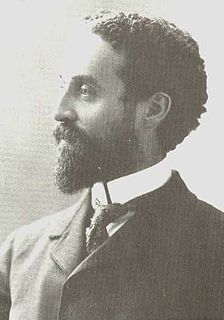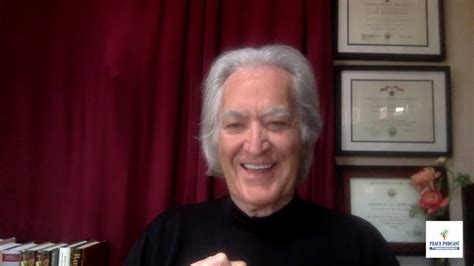A Quote by Rabindranath Tagore
According to the true Indian view, our consciousness of the world, merely as the sum total of things that exist, and as governed by laws, is imperfect. But it is perfect when our consciousness realizes all things as spiritually one with it, and there
Related Quotes
According to the true Indian view, our consciousness of the world, merely as the sum total of things that exist, and as governed by laws, is imperfect. But it is perfect when our consciousness realizes all things as spiritually one with it, and therefore capable of giving us joy. For us the highest purpose of this world is not merely living in it, knowing it and making use of it, but realizing our own selves in it through expansion of sympathy; not alienating ourselves from it and dominating it, but comprehending and uniting it with ourselves in perfect union.
I consider morals and aesthetics one and the same, for they cover only one impulse, one drive inherent in our consciousness - to bring our life and all our actions into a satisfactory relationship with the events of the world as our consciousness wants it to be, in harmony with our life and according to the laws of consciousness itself.
When we pause to think, we are compelled to admit the existence of consciousness as the primal and surest fact. What we know of the great world around is known through our states of consciousness, and if we seem to be living a merely objective life, amidst external things, it is because we have become oblivious of the real nature of experience.
I do think it's important to distinguish between intentionalism about consciousness and externalism about consciousness. Intentionalism says that consciousness is a form of intentionality - the representation of things to the mind. Externalism says that these things have to exist in order for them to be represented, or presented. These are different views.
I don't know what happens to our consciousness when we're unwound," says Connor. "I don't even know when that consciousness starts. But I do know this." He pauses to make sure all of them are listening. "We have a right to our lives!" The kids go wild. "We have a right to choose what happens to our bodies!" The cheers reach fever pitch. "We deserve a world where both those things are possible— and it's our job to help make that world.
In the field of consciousness research-and also in physics and astronomy-we are breaking past the cause-and-effect, mechanistic way of interpreting things. In the biological sciences, there is a vitalism coming in that goes much further toward positing a common universal consciousness of which our brain is simply an organ. Consciousness does not come from the brain. The brain is an organ of consciousness. It focuses consciousness and pulls it in and directs it through a time and space field. But the antecedent of that is the universal consciousness of which we are all just a part.
The cognitive structure does not generate consciousness; it simply reflects it; and in the process limits and embellishes it. In a fundamental sense, consciousness is the source of our awareness. In other words, consciousness is not merely awareness as manifest in different forms but it is also what makes awareness possible.
I do not think that the government, under the guise of some phony, alarmist, pseudo-scientific rhetoric, should attempt to control the evolution of consciousness. After all, if these things truly are consciousness-expanding, it doesn't take too much intelligence to realize that it is the absence of consciousness that is causing our flirtation with extinction and planetary disaster.




































